This seeks to investigate the individuation of ecological systems and attribution of function to their components as a ground for intrinsic purposiveness, applying the theoretical outcomes to analyze whether ecosystem health and distress or disruption are justifiable concepts, as well as whether intrinsic value can be ascribed to ecological systems. In particular, it will apply an organizational account of ecological functions to understand intrinsic purposiveness in ecological systems and derive principled criteria for identifying functional groups and traits and justifying (or not) judgments of normal and pathological functioning in ecosystems as well as intrinsic value ascription to such systems. Key outputs of this work will be practical diagnostic tools for individuating ecological systems and ascribing functions to their parts, and a philosophical basis to justify or reject health-related metaphors for establishing goals in environmental management as well as ascriptions of intrinsic value to ecological systems.
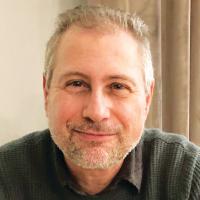
Charbel El-Hani
Higher-Level Agency and Directionality in Ecology and Earth Science
An organizational account of ecological functions
Subaward Principal Investigator
Federal University of Bahia (UFBA)
Charbel N. El-Hani is full professor in the Institute of Biology, Federal University of Bahia, Brazil. Coordinator of the History, Philosophy, and Biology Teaching Lab (LEFHBio) and the National Institute of Science and Technology in Interdisciplinary and Transdisciplinary Studies in Ecology and Evolution (INCT IN-TREE). Between January 2020 and July 2021, he was visiting researcher at the Centre for Social Studies, University of Coimbra, Portugal. He works in the areas of philosophy of biology, ecology, ethnobiology and science education research.
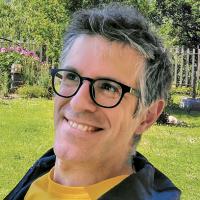
Leonardo Bich
Evolutionary Origins and Transitions of Agency, Higher-Level Agency and Directionality in Ecology and Earth Science, Agential Behavior and Plasticity in Evolution
An organizational account of ecological functions, Directedness in holobiont systems, Integration and individuation in the origin of agency
University of the Basque Country
Leonardo Bich is a ‘Ramon y Cajal’ Researcher at the IAS-Research Centre for Life, Mind, and Society of the University of the Basque Country (UPV/EHU), Spain. He obtained a PhD in Anthropology and Epistemology of Complex Systems from the University of Bergamo. He worked at the CNRS & University of Bordeaux, at the Biology of Cognition Lab of the Universidad de Chile and, as a visiting fellow, at the Center for Philosophy of Science of the University of Pittsburgh. His research is focused on theoretical and epistemological issues related to biological organisation, autonomy, and control and on their implications for investigations in Origins of Life, Synthetic and Systems Biology, and Theoretical Biology.
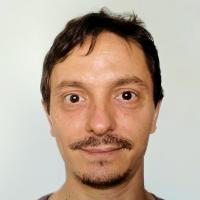
Paride Bollettin
Higher-Level Agency and Directionality in Ecology and Earth Science
An organizational account of ecological functions
Paride Bollettin obtained his PhD in Social Anthropology at the Università degli Studi di Siena. In sequence he worked as a researcher and as a professor in various universities in Italy, Brazil, Latvia and UK. Actually acts as an assistant professor at the Department of Anthropology, Faculty of Science, Masaryk University. He had worked with the Mebengokré of the Trincheira-Bacajá Indigenous Land for sixteen years, developing collaborative researches in diverse topics, including the local experiences of socio-ecological relations.
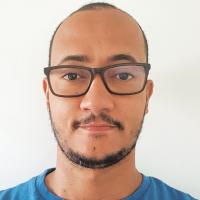
Jeferson Coutinho
Higher-Level Agency and Directionality in Ecology and Earth Science
An organizational account of ecological functions
Graduated in Biological Sciences from the Federal University of Bahia (2010). Master in Ecology and Biomonitoring (2013 - UFBA). Doctor in Ecology from the Federal University of Bahia, with a period at the Universidad Nacional del Río Negro, Bariloche, Argentina. Has experience in the field of Ecology, with an emphasis on Applied Ecology and Pollination. Develops studies in the area of Ecology and Functional Diversity of Bees. He works at the Laboratory of Biology and Ecology of Bees with research involving citizen science and transdisciplinarity. He teaches Basic, Technical and Technological Education at the Federal Institute of Education, Science and Technology of Bahia, Campus of Salvador. He currently serves as head of the Department of Health Technology and Biology (DTSBio). He is a Researcher at the National Institute of Science and Technology in Inter and Transdisciplinary Studies in Ecology and Evolution - INCT-IN TREE. Email: jeferson.gabriel@gmail.com
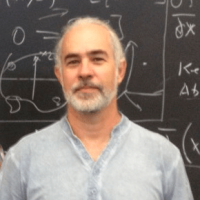
Paulo Inácio de Prado
Higher-Level Agency and Directionality in Ecology and Earth Science
An organizational account of ecological functions
Universidade de São Paulo
Paulo is a biologist focused on understanding ecological patterns as the result of interacting components of ecological and socio-ecological systems. He views statistical, computational, and mathematical models as hypotheses that enable us to inquiry nature. This, in turn, informs the creation of new models in a dialectical process. His primary research centers on interacting populations, exploring dynamics such as consumer-resource and competition relationships. Paulo is also interested in the role that models play in shaping ecological theory.
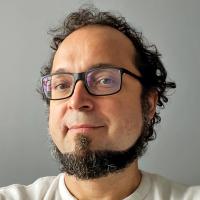
Hilton Japyassu
Higher-Level Agency and Directionality in Ecology and Earth Science
An organizational account of ecological functions
Federal University of Bahia
Undergraduate studies in Biological Sciences at São Paulo University (Brazil), with Master and PhD in Experimental Psychology at São Paulo University. Visiting professor at Saint Andrews University (Scotland, 2016). I have been a scientific researcher for 10 years at Butantan Institute (São Paulo - Brazil), a professor at the Catholic University (PUC - São Paulo) and now I am a full professor at the Federal University of Bahia for more than 10 years. I am associated to two Graduate Studies Programs (Ecology, and Biodiversity and Evolution), were I have either acted as a coordinator (Biodiversity and Evolution) or as part of the administration board (Ecology). I have also been the president of the Brazilian Society of Ethology, and my main research areas are behavioural plasticity, extended cognition, extended evolutionary synthesis, animal personality and social behaviour.
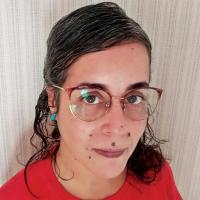
Clarissa Leite
Higher-Level Agency and Directionality in Ecology and Earth Science
An organizational account of ecological functions
My name is Clarissa Machado Pinto Leite, I am a postdoctoral researcher at the National Institute of Science and Technology in Interdisciplinary and Transdisciplinary Studies in Ecology and Evolution (Brazil). I was trained in ecology but my current research branching out into social sciences and it is related to inter- and transdisciplinary practices. I hold a bachelor’s degree in Biological Sciences (2006), a master’s degree in Ecology and Biomonitoring (2010), and a doctorate in Ecology (2016) from the Federal University of Bahia. My doctoral thesis had as central theme the occurrence of biodiversity thresholds in Atlantic Forest and was associated with a project on effects of the reduction of vegetation cover and historical biogeography on extinction thresholds. My main research interests are: Theoretical and Applied Ecology, Inter- and Transdisciplinary Practices, and Science Education Research.
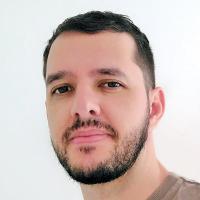
Juliomar Marques Silva
Higher-Level Agency and Directionality in Ecology and Earth Science
An organizational account of ecological functions
Federal University of Bahia (UFBA)
Graduated (2013), master (2015), and doctor (2022) in philosophy from Federal University of Bahia (UFBA). Was a substitute professor at the philosophy department of UFBA in 2017. During his graduation was a fellowship of programs like PIBIC (Fellowship Program of Scientific Initiation) and PIBID (Fellowship Program of Teaching Initiation). Member of the research group Philosophical Inquiries: Mind, Reality, and Knowledge. Currently, he is a researcher from LATAM - Bridges in the epistemology of religion (2020-2022), a project funded by the John Templeton Foundation and based on the University of Houston. Since his graduation is interested in epistemological questions, having worked with ancient skepticism (Pyrrhonism and Sextus Empiricus). In his doctorate wrote a thesis on the epistemology of disagreement. Besides, he is also interested in the virtues\vices epistemology. Nowadays, he is working as a postdoc researcher in the subproject "Toward a science of intrinsic purposiveness: an organizational account of ecological functions and its implications to ecological research and environmental ethics" from the umbrella project Agency, Directionality & Function funded by the John Templeton Foundation.
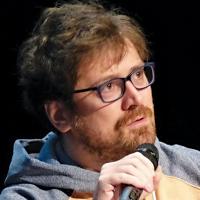
Maël Montévil
Agency and Directionality in Development, (Re)Conceptualizing Function and Goal-Directedness, Higher-Level Agency and Directionality in Ecology and Earth Science
An organizational account of ecological functions, Intrinsic purposiveness and the shaping of development, Open-ended evolution and organizational closure
Maël Montévil is chargé de recherche in CNRS, in République des savoirs, USR 3608, École Normale Supérieure. He is a theoretical biologist working at the crossroad of experimental biology, mathematics, and philosophy. He developed the framework of constraints closure and theorized biological historicity and its implications for theory and modelization with which to study current issues such as endocrine disruptors and, more generally, anthropocene's disruptions and our response to them. Montévil is the author of more than twenty-five peer-reviewed articles and a monograph with Giuseppe Longo: Perspectives on organisms.
